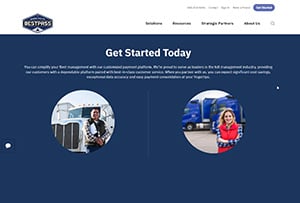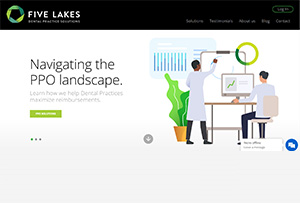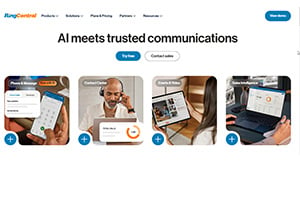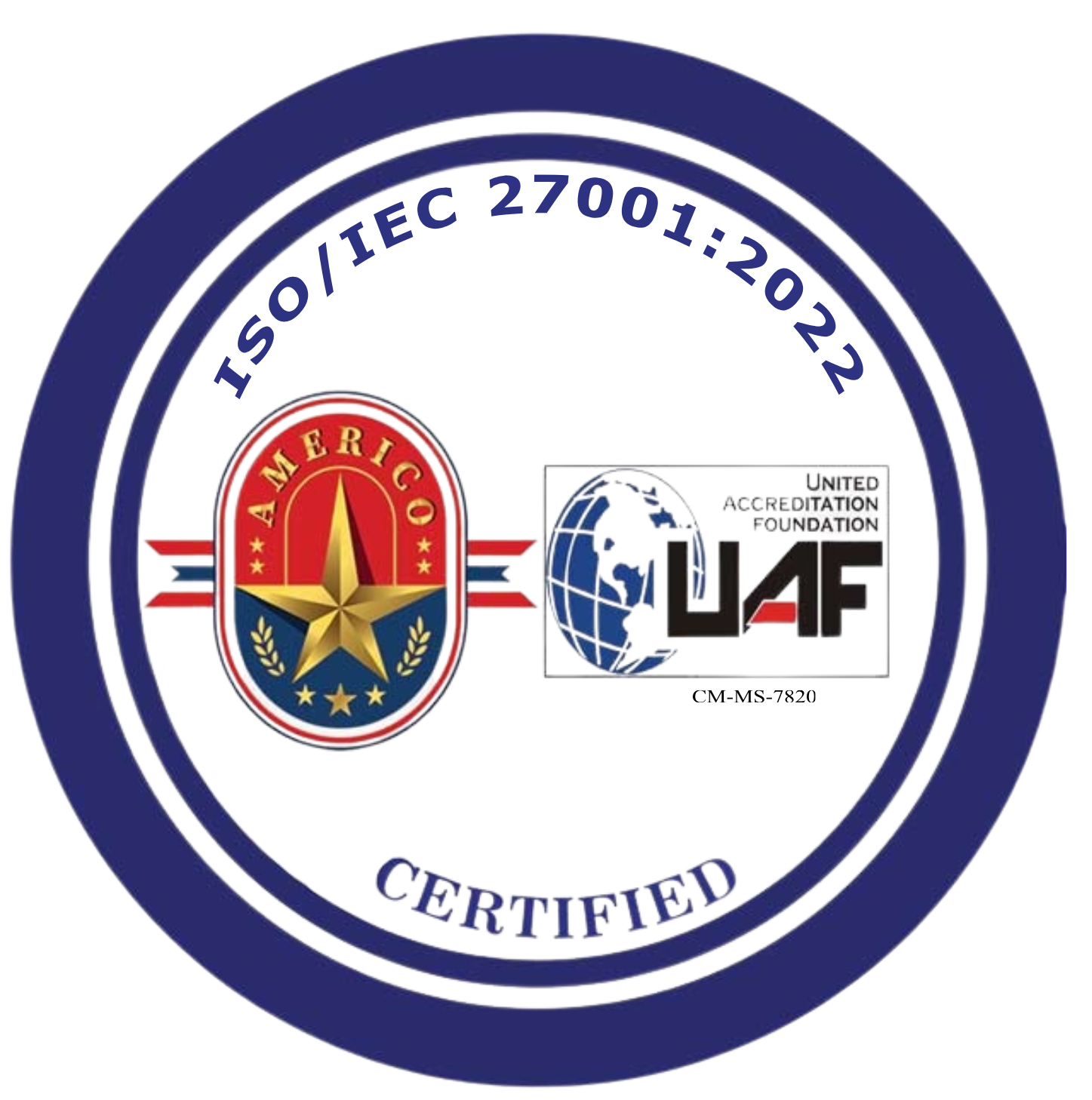- Home
- Industries
- Travel BPO
Elevate Customer Experience with Reliable Travel BPO Staff
Make travel management easier with Unity Communications. Whether you’re in tourism or tech, we’ll help you streamline workflows and boost efficiency.
Trusted by Hundreds of Small and Medium-Sized Businesses for Reliable BPO Solutions












Committed to Security and Excellence: ISO 27001 Certified
At Unity Communications, data security is our priority. Our ISO 27001 certification ensures that we follow globally recognized standards for information security, risk management, and regulatory compliance—giving you peace of mind when outsourcing critical business operations.
Trust us to keep your data safe while delivering world-class BPO solutions.
We Help Your Company Provide
Hassle-Free Travel Experiences
Travel Management Support
Omnichannel Customer Service
Keep clients and tourists happy with seamless support. We leverage cloud technologies to provide consistent customer service across various channels, whether through phone, email, or chat.
Customer Loyalty Management
You can count on our loyalty management CSRs to oversee your programs, handle member inquiries, and organize special events and exclusive experiences for loyal customers!
Reservation and Booking Services
Increase booking speed while reducing errors. Our BPO teams can handle bookings efficiently, utilizing advanced systems for quicker turnaround times, accurate reservations, and prompt confirmations.
Comprehensive Administrative Support
Free yourself from time-consuming administrative tasks! We cover repetitive and daunting administrative processes, such as data entry, finance, and more, so you can focus on customer experiences.
Digital Marketing Services
Social Media Management
Keep your followers engaged with compelling social media content and interactions. We help you create captivating posts, respond to comments and messages, and monitor social media trends.
Content Management
Reach more tourists with optimized website content. Our travel BPO services include creating, updating, and managing travel-related content, such as destination guides, travel tips, and blog posts.
Email Marketing
Keep your brand on top of your customers’ minds! We’ll help you create and send targeted emails to promote deals and updates, manage subscribers, and analyze campaign performance.
Technical Support
Resolve travel technology issues promptly and proactively. We address customer concerns related to your apps, including booking errors, authentication problems, and more!
Why Travel BPO Companies Choose Unity Communications
In the fast-paced world of travel, exceptional customer service isn’t just an advantage—it’s a necessity. At Unity Communications, we specialize in delivering seamless, high-quality BPO solutions that enhance traveler experiences, optimize efficiency, and drive business success.
Here’s why leading travel companies trust us:
- 95% CSAT Improvement – We’ve helped clients boost customer satisfaction scores by an average of 95% through reduced wait times, enhanced call quality, and improved first-call resolution (FCR).
- 96% On-Time Delivery – We understand the importance of deadlines. With a 96% on-time delivery rate, we ensure smooth operations and reliable service.
- Fast Integration (14-90 Days) – Need results quickly? We integrate with client systems in as little as two weeks, ensuring a seamless transition with minimal downtime.
When it comes to travel BPO services, speed, efficiency, and customer satisfaction are everything. Unity Communications delivers on all three—so you can focus on growing your business while we handle the rest.
Craft Unforgettable Trips Without Administrative Hassles
Unity Communications lightens the load of travel agencies. Our customized BPO solutions include an expert team to help your agency maximize productivity and innovate solutions.
Your Dedicated Travel BPO Team Includes:
- 24/7 Customer Service Agents
- Dedicated Virtual Assistants
- Data Entry Experts
- Team Leads and Managers
- Social Media Managers
- Content Creators and Writers
- Digital Marketing Specialists
- Technical Support Agents
- Software Maintenance Teams
How can we help your business grow today?
Fill out the form, or if you prefer, send us an email or call, and we’ll assist you with your needs.
Smart, Secure, and Scalable: The Unity Communications Advantage
Get more work done in less time with scalable resources, streamlined operations, and improved workflows. Unity Communications helps you minimize expenses without sacrificing service quality and data privacy!
Scale Your Operations Seamlessly.
- Breeze through peak travel seasons. With Unity Communications, you can scale BPO solutions as needed, ensuring you always have the right amount of resources.
Flexible, Personalized Support
- Our BPO teams can quickly adapt to your culture and processes, keeping customer experiences seamless and aligned with your travel agency’s brand.
Global Expertise With a Local Touch
- Connect with a diverse pool of administrative and tourism management assistants well-versed in industry best practices and international travel regulations.
Ensure Smooth Technology Integration.
- We utilize many popular platforms and customize solutions to ensure undisrupted integration with your existing systems and infrastructure.
Protect Customer Data.
- Our company handles data with extreme caution. We comply with relevant laws and standards, implementing solid data security measures to keep your data safe.
Over a Decade of BPO Expertise
- With more than 15 years of industry experience, we carry unique insights that can help your travel agency optimize operations for enhanced customer satisfaction.
Interested in Outsourcing Your Travel
Agency’s Back-Office Roles to Unity Communications?
Get in touch
Schedule a 30-minute call with our founder and CEO
Get a proposal
We’ll identify your needs and provide a proposal in less than 3 days
Meet and greet your new team
We’ll get your entire team onboarded and ready to start working for you in less than 30 days.
What Is Travel BPO?
Business process outsourcing (BPO) is pivotal in the growing, dynamic travel and hospitality industries. This strategy helps airlines, hotels, resorts, restaurants, travel agencies, and related businesses simplify tasks to enhance long-term growth.
Travel and hospitality companies reach out to Unity Communications to help them concentrate on their core competencies, acquire needed expertise, and improve secondary operations. This article discusses outsourcing benefits and challenges, integration optimization tips, and future industry trends.
Keep reading to discover how Unity Communications can help organizations of any size thrive in the global travel and hospital industry.

Demystifying Travel BPO for Travel and Hospitality Companies
Travel BPO entails assigning travel-related processes to service providers. Hospitality and travel companies can outsource these tasks to a nearshore, onshore, or offshore BPO provider, allowing these companies to focus on their primary operations and long-term objectives. Outsourcing can boost overall productivity, performance, and earnings.
The worldwide travel industry will grow mainly due to pervasive social media influence, continued globalization, and increased international business activities. Reports estimate that the global tourism source market reached $652.3 billion in 2023. The sector is expected to grow to $986.5 billion by 2032 at a 5.2% compound annual growth rate (CAGR).
Similarly, the hospitality sector will experience a rapid expansion. According to reports, the worldwide hospitality market will exceed $6.7 trillion by 2028 at a CAGR of 10.24% between 2022 and 2028. Increasing disposable income, better living conditions, and diverse food and lodging options across various price ranges propel the surge.
The travel and hospitality industry’s growth is driving increased demand for BPO services. As businesses multiply, they demand assistance with customer service, back-office duties, and other supplementary operations. BPO providers can address these needs, stimulate demand, and foster partnerships between the two sectors.
BPO Services for Travel and Hospitality Organizations
Outsourcing allows travel and hospitality organizations to simplify processes, reduce costs, and boost productivity. It can also help meet industry demands and customer expectations. Below are key examples of BPO services for the travel and hospitality industry:
- Customer service. Nearshore and offshore BPO firms offer 24-hour phone, email, and live chat support. Their bilingual customer care services provide effective communication and personalized, timely assistance for all passengers worldwide.
- Reservation and booking management. Service providers properly handle reservations, including inventory, processing, and confirmations.
- Travel itinerary planning. BPO specialists customize itineraries according to travelers’ choices and budgets. With comprehensive location expertise, they also improve passengers’ experiences by recommending sites and lodgings.
- Back-office operations. BPO services handle administrative responsibilities such as data entry and invoice processing. They also optimize back-office procedures and increase productivity by deploying information technology (IT) solutions.
- Revenue management services. BPO partners analyze market trends and demand patterns to formulate competitive pricing strategies that maximize revenue and occupancy rates for travel organizations. They use powerful algorithms for improved, dynamic pricing.
- Digital marketing and online presence management. BPO professionals develop and manage engaging websites and social media content to increase brand awareness and attract potential passengers. They also optimize content for search engines to bring organic traffic to travel industry platforms.
- Quality assurance and compliance management. Service providers conduct regular quality audits to guarantee service excellence and retain business process outsourcing compliance. They stay updated on industry norms and standards, assisting travel organizations in meeting legal requirements and certifications.
Top Issues Travel and Hospitality Enterprises Encounter
In the evolving travel and hospitality industry, businesses confront several difficulties that need proven approaches to remain relevant and prosper. The following are some significant problems among these enterprises:
- Safety and security. Ensuring traveler safety is crucial for travel and hospitality enterprises, which must tackle terrorism, natural disasters, pandemics, and cyber threats. Strong security measures and crisis protocols are essential to protect tourists and maintain trust.
- Customer experience. Exceptional customer experience fosters loyalty and competitiveness. Enterprises prioritize personalization, convenience, and seamless service, adapting to digital expectations through continual innovation and technology investment.
- Digital transformation. Keeping up with technological developments is crucial for relevance. Enterprises must take advantage of online bookings, mobile check-ins, personalized recommendations, and data analytics.
- Sustainability and responsible tourism. Sustainability is crucial for consumers and regulators, urging enterprises to minimize their footprint, reduce waste, conserve resources, and support communities. Embracing sustainability appeals to socially conscious travelers.
- Regulatory compliance. Complying with regulations is critical for travel businesses. They face challenges navigating complex laws concerning safety, security, health, taxation, data privacy, and accessibility. Staying updated is essential.
- Revenue management. Maximizing travel revenue is complex. Pricing fluctuates due to seasonality, competition, and consumer behavior. Enterprises require advanced revenue management tactics, including dynamic pricing and demand forecasting, to optimize their revenue.
- Talent acquisition and retention. Given high turnover rates and labor shortages, recruiting and retaining skilled talent are crucial for travel enterprises. Investing in employee training, development, and workplace culture fosters engagement and loyalty.
- Market competition. Intense competition in travel demands differentiation and innovation. Enterprises monitor market trends and preferences to maintain a competitive edge through continuous improvement and adaptation.
Advantages of BPO for Travel and Hospitality Firms
BPO organizations can help travel and hospitality businesses overcome the challenges above by offering benefits that spur expansion and market stability. Let us examine each of these perks:
- Significant cost savings. BPO providers save travel and hospitality businesses money by hiring skilled personnel from lower-cost locations. They provide flexible pricing structures that match costs with business needs while reducing overhead.
- Undivided focus on core competencies. Delegating noncore operations enables travel and hospitality companies to channel their internal resources into core marketing and product development activities, increasing growth and competitive advantage.
- Accessible expertise. BPO organizations in the travel and hotel industries provide customer care and revenue management expertise. Companies that partner with them can access industry best practices, innovative solutions, and efficient procedures without costly training or infrastructure investments.
- Scalable functions. BPO services offer travel and hospitality firms scalability, adjusting resources to match demand fluctuations or growth. Service providers optimize resource usage by bolstering support during peak season or reducing it during slower periods.
- Improved customer service. Outsourcing customer care to BPO firms enhances customer experience. With dedicated teams of trained professionals, they offer first-rate support, prompt issue resolution, and individualized assistance, improving loyalty and brand reputation through positive referrals.
- Round-the-clock support. Many BPO vendors provide 24-hour customer assistance, allowing travel and hospitality companies to help tourists at any time. This guarantees that travelers receive timely support, regardless of their time zone or location, raising customer satisfaction and loyalty.
- Reduced risks. Outsourcing can help reduce personnel shortages, regulatory compliance issues, and the dangers of outdated technology. BPO organizations have broad contingency plans, compliance controls, and digital infrastructure for threat mitigation.
Navigating Travel BPO Obstacles in Travel and Hospitality Ventures
While travel BPO has many advantages, it also presents some issues for travel and hospitality firms. Understanding these problems and applying practical methods are critical for navigating them.
- Quality control. Ensuring consistent service quality in BPO operations can be difficult due to performance variations, language barriers, and cultural differences that affect customer satisfaction.
Recommended actions: Build quality standards, provide comprehensive BPO staff training, and conduct performance evaluation to align with brand values and service requirements.
- Data security and privacy. Travel and hospitality organizations manage sensitive client information. Thus, data security and privacy are top priorities when outsourcing operations.
Recommended actions: Partner with BPO providers that use robust data security measures, such as encryption and access controls, and ensure they comply with the General Data Protection Regulation (GDPR).
- Communication and coordination. Effective interaction between the travel business and the BPO provider is crucial for successful outsourcing. Time zone differences, language barriers, and goal misalignment might arise.
Recommended actions: Establish transparent channels, assign dedicated contacts, use collaboration tools, and cultivate teamwork and respect.
- Cultural sensitivity. Interactions in the travel industry involve culturally diverse customers. The BPO partner must understand and respect cultural nuances, preferences, and communication styles to provide exceptional customer experiences.
Recommended actions: Offer cultural sensitivity training to BPO professionals, promote diversity in the workforce, and review customer feedback for improvement opportunities.
- Technological integration. Combining BPO operations with existing technology can be complex, leading to compatibility issues, data challenges, and system disruptions during implementation.
Recommended actions: Assess technology, prioritizing interoperability and scalability. Invest in agile IT solutions and work closely with BPO providers for seamless integration and transition.
Acquiring the Best Travel BPO Partner
Partnering with trustworthy business process outsourcing companies is critical for travel and hospitality firms’ overall success. Use these factors to identify the ideal travel BPO partner:
- Compliance proficiency. Examine the BPO partner’s familiarity with regulations relevant to the travel and hospitality industries, including data security and banking requirements. Validate candidates’ credentials to check whether they are committed to compliance.
- Transparency and straightforwardness. Assess the BPO partner’s communication methods and responsibilities. Seek BPO partners that value open and direct communication, deliver regular alerts and reports, and reply to requests and suggestions.
- Pricing framework. Analyze the BPO provider’s pricing strategy. Prioritize value above costs by balancing reasonable fees with outstanding services and proven business benefits.
- Alignment with company values. Determine the cultural compatibility between the travel or hospitality business and the BPO partner. Opt for BPO partners with the same values, work ethic, and corporate culture to ensure successful collaboration.
- Field expertise. Look for BPO candidates with substantial industry experience. Previous involvement with hotels, restaurants, travel agencies, entertainment, and other comparable businesses displays familiarity with their concerns and regulations.
- Track record. Investigate the BPO partner’s background. Review customer feedback, case studies, and achievements to see how they consistently yield outcomes.
- Versatility. Gauge the scalability and adaptability of the BPO partner’s services. Travel and hospitality firms need partners that can adapt to shifting expectations. Consider configurable solutions and adaptable engagement strategies.
- Technology mastery. Check the BPO partner’s technological expertise and infrastructure. They must have cutting-edge technology, strong security measures, and creative travel and hospitality solutions.
Effective Methods for Incorporating Travel BPO into Operations
Travel and hospitality businesses must embrace BPO services through detailed planning, open communication, and intelligent execution to boost output, efficiency, and revenue. Here are some tips for implementing and optimizing travel BPO services:
- Detail specified objectives. Before integrating, define outsourcing goals and expectations. Decide which duties to delegate and establish quantitative improvement objectives.
- Cultivate reliable communication networks. Direct engagement is required for BPO integration. Establish clear channels and engagement criteria. Periodic meetings and feedback sessions assist in maintaining consistency and transparency during integration.
- Construct comprehensive integration frameworks. Set explicit integration plans outlining the stages, timeframes, and responsibilities for BPO integration. Design processes, protocols, and data standards to guarantee a seamless transition with little interruption.
- Provide thorough guidance and instruction. Throughout the integration, deliver intensive training and support to internal and BPO team members. Ensure that all workers understand their roles and responsibilities and how to use the systems.
- Employ robust software solutions. Use technology to provide a smooth engagement. Cloud platforms, project management tools, and communication systems help streamline operations, track progress, and evaluate performance more efficiently.
- Monitor outcomes and improvements. Look into the performance of the BPO team to discover flaws and implement adjustments. Monitor key performance indicators (KPIs) to analyze the success of both outsourced and internal business activities.
- Encourage teamwork and partnership. Foster connections and collaboration among travel and hospitality companies and BPO providers. Encourage frequent communication, information exchange, and mutual respect to strengthen collaborations.
Future Travel BPO Trends Influencing Travel and Hospitality Firms
Developments in the BPO industry change how travel and hospitality organizations use outsourcing. Here are the emerging outsourcing trends that might influence businesses:
- Data analytics and insights. Data analytics is critical in travel BPO, collecting insights from various data sources, including consumer interactions and industry trends. BPO companies use the information to optimize pricing, improve marketing, tailor services, and match products with individual traveler preferences to provide better experiences.
- Customer experience enhancement. In the competitive travel and hospitality industry, providing outstanding client experiences is critical. Future BPO trends will focus on improving interactions in all phases, using omnichannel platforms, chatbots, and virtual assistants to give passengers seamless, tailored experiences.
- Sustainability. As environmental consciousness rises, travel and hospitality companies prefer sustainable BPO partners. Future trends include reducing carbon emissions while also encouraging ethical travel. BPO firms will prioritize sustainable practices to accommodate clients’ objectives.
- Resilience and business continuity. The pandemic tested travelers’ resilience. BPO businesses help travel organizations navigate shocks and build resilience by assisting in continuity planning and enabling flexible work patterns.
- Remote work. The shift to remote work has revolutionized travel. Future BPO trends will highlight remote capabilities. This flexible approach enables businesses to access global talent, cut expenses, and adjust to market changes.
The Bottom Line
Travel BPO improves operational efficiency, customer satisfaction, and revenue growth for travel and hospitality firms. Businesses that outsource noncore operations to service providers can focus on providing outstanding travel experiences to become more competitive and thrive in a dynamic marketplace.
By collaborating with a reputable BPO provider, travel and hospitality organizations can also enhance their sustainability efforts and regulatory compliance. These two factors increasingly shape consumer preferences and industry standards.
Let’s connect if you’d like to learn more about how Unity Communications’s travel BPO services can help you grow your business!
Take the Next Step Toward Smarter Travel Outsourcing
Schedule a 30-minute consultation with our CEO today and discover how Unity
Communications can help streamline your operations.
Frequently Asked Questions and Answers
Let’s Connect and Explore
Looking to Meet Now? Schedule A Meeting Today

